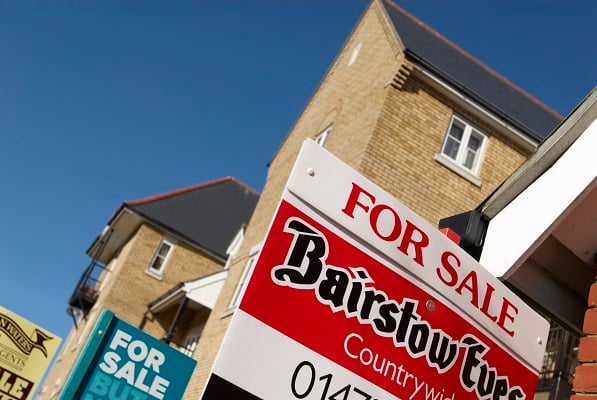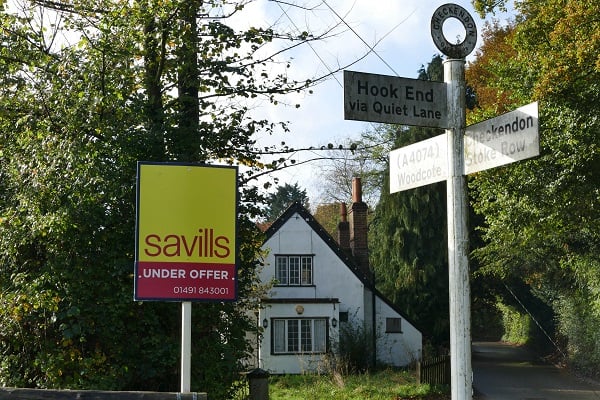As technology continues to evolve, so too has the home survey process. While traditional methods such as manual measurements and paper-based reports were once common, there has been a notable shift among property surveyors, which favours the use of digital tools.
From damp detectors and 3D scanners to drones and GPS/GNSS; surveying has evolved significantly in recent years to incorporate the use of advanced electronic measuring and mapping equipment.
Despite these advancements, many purchasers are unaware of the in-depth and beneficial insight provided by a surveyor, and assume that a simple mortgage lender valuation will provide them with enough information to proceed with their purchase.
According to recent research conducted by GB Home Surveys, 59% of UK homeowners are completely unaware that the vast majority of property valuations for mortgage lenders do not provide a full inspection and are now completed via a desk or drive-by surveys.
Here James Quinn, Director of residential property survey specialists, GB Home Surveys, outlines the importance of a home survey and in using a chartered home surveyor.
What is the difference between a mortgage lender evaluation and a home survey?
A home survey is a detailed examination of a residential property for a prospective buyer, which checks the site for common issues such as mains, asbestos, dampness and much more.
A home survey is carried out by a surveyor before the property is purchased.
Once the inspection is complete, a report is created and shared with the buyer, containing photographs, notes, recommendations and a report on the overall condition of the property.
In contrast, a mortgage valuation looks at the property’s overall value and protects the bank’s investment. It is not a thorough detailed evaluation like a home survey, which details all defects, and identifies areas of concern to protect the investment of the purchaser.
Although a mortgage valuation can pick up on certain potential problems, it does not provide the same level of insight as a home survey.
Our recent research shows that this actually creates a level of concern with over two-thirds of homeowners revealing they would not be happy relying on a desk or drive-by survey carried out by mortgage lenders when purchasing a new house – with a further 70% advising they do not feel such valuations would be able to identify any potential issues with the property.
Why should buyers use a home surveyor?
When it comes to property inspection, surveyors are highly trusted professionals who play a critical role in providing prospective buyers with important information about the condition of a potential property. This includes a thorough assessment of the property’s structural integrity, as well as its electrical and plumbing systems, and overall compliance with safety regulations.
By highlighting any issues during the inspection, prospective buyers can use this information to negotiate better deals on a potential home that may require repairs or renovation – or even enable them to purchase an alternative property should it be beyond the state of disrepair.
Through our research, 43% of homeowners revealed they have experienced issues with damp when either purchasing or renting a property, with 26% confirming they have experienced electrical issues. This statistic clearly outlines the sheer importance of a thorough home survey to identify and address hazardous issues prior to completing any property purchase,
It’s important, however, for purchasers to remember that a mortgage valuation is part of the purchasing process, but to protect their investment and interest as buyers, they should seek an independent, in-depth inspection from a chartered residential surveyor.
Choosing the right surveyor
When seeking a home survey, it is highly recommended to use a qualified Chartered Surveyor to conduct a full inspection of the property before proceeding with the purchase.
A chartered surveyor is an RICS-registered home surveyor, with RICS [the Royal Institution of Chartered Surveyors] being the UK property sector’s governing body. The organisation is dedicated to promoting and enforcing the highest professional qualifications and standards in the development and management of land, construction, real estate, and infrastructure. Through this affiliation, prospective buyers can be confident that a thorough and precise inspection has been conducted.
In addition, it is also advisable to use a Chartered surveyor with knowledge of the local area. The best home surveys are conducted by local surveyors as they know the local market and can provide a far more accurate report.
Conclusion
In conclusion, it is crucial that home buyers understand the limitations of mortgage valuations and seek out an independent survey before proceeding with their purchase. Not only can this help to identify any defects that may be present, but it can also provide valuable insight into the property’s condition and help buyers to negotiate a fair price.
James Quinn, Director of GB Homes Surveys said, “GB Home Surveys provides a team of chartered surveyors spread out across the Southwest, West Midlands and South Wales. With a team of RICS members, you can trust that GB Home Surveys will complete an inspection professionally, and competently.”






Leave a Comment